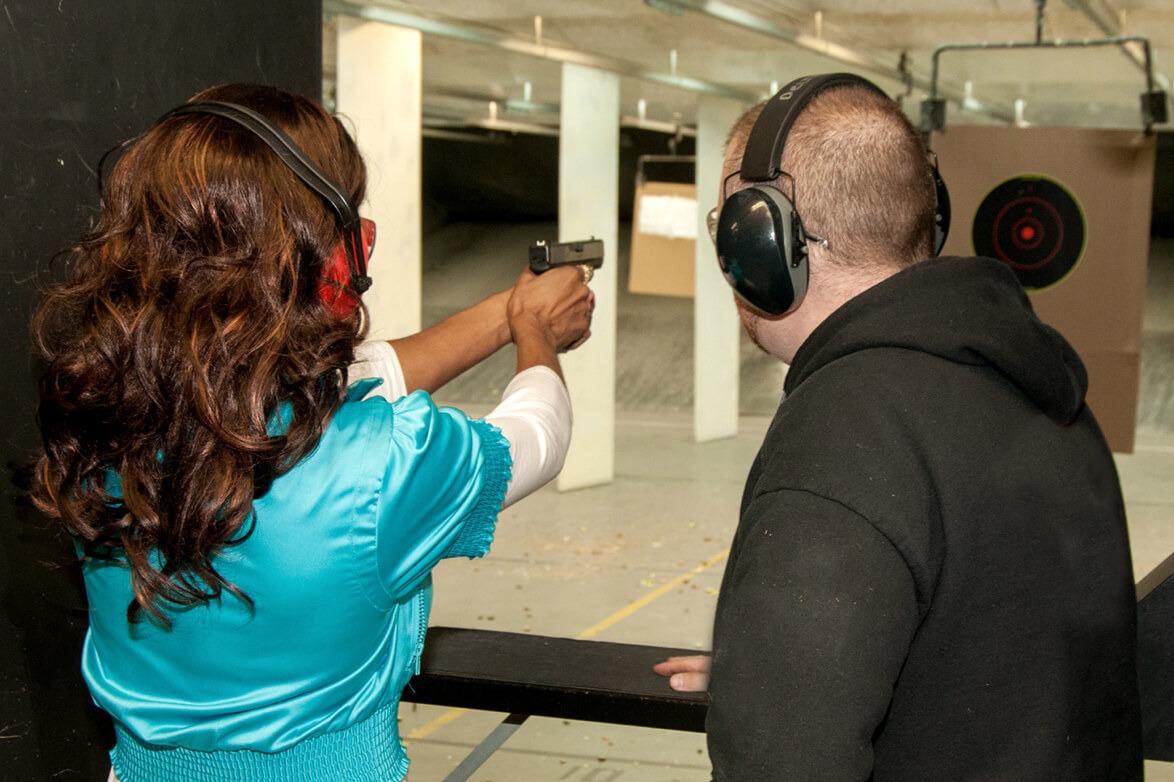 Back to News
Back to News
Image Source: (AP Images/Ismael Rosas)
May 29, 2024
Mexico’s Presidential Election Void of Policy Change
Mexico’s voters will head to the polls on June 2 to choose who will succeed Mexican President Andrés Manuel López Obrador. He’s the controversial figure who adopted a “hugs, not bullets” approach to handling narco-terrorist cartels that have ravaged his country. He’s also the one who signed off on the controversial $10 billion lawsuit against firearm manufacturers that’s being appealed to the U.S. Supreme Court, after being revived by the U.S. Court of Appeals for the First Circuit, as well as a similar lawsuit against several retailers in federal court in Arizona.
Not content to bankrupt members of the firearm industry, Mexico’s lawsuits infringe on the Second Amendment, U.S. national sovereignty and usurp the role of Congress and state legislatures by imposing a nationwide injunction on how Mexico believes firearms should be sold in the United States.
The two leading candidates vying for office are women – Claudia Sheinbaum, the former Mexico City mayor, and Xóchitl Gálvez, an opposition senator and tech entrepreneur who represents a coalition of several Mexican political parties. Sheinbaum holds a double-digit polling lead that’s remained steady for months and the election is just days away.
Observers are pitching the election as a sea-change for Mexico. The two leading candidates would be the first woman elected as Mexico’s president. However, hope for real change in the misguided and corrupt policies that President López Obrador embraced have little chance.
Corruption and Violence
Mexico is headed for more of the same corruption, crime and pursuit of baseless lawsuits against U.S. firearm manufacturers. That’s largely because President López Obrador has ceded over half of the country to cartel control. The Economist’s Intelligence Unit downgraded Mexico from a “flawed democracy” to a “hybrid regime.” El País, a Spanish-language international news outlet, noted that 53 percent of Mexican voters consider insecurity to be Mexico’s biggest problem. That was followed by corruption, ranked at 32 percent. Over 113,000 Mexicans are estimated to have “disappeared.”
President López Obrador is a head-of-state only because he’s working hand-in-glove with the narco-terrorist drug cartels that are the scourge of Mexico. He refuses to confront those cartels, which are facilitating illegal drug and firearm trafficking. The U.S. Drug Enforcement Agency uncovered “substantial evidence” that drug cartels funneled $2 million to his campaign and that it was impossible to divorce government officials from criminal cartels.
Gálvez has been an outspoken critic of President López Obrador’s “hugs, not bullets” policy. She wants to build a state-of-the-art mega-prison, much like the one El Salvador’s President Nayib Bukele built in his country and filled with over 70,000 in a state of emergency. Critics allege many of those inmates are innocent.
Gálvez would also end President López Obrador’s policy of Mexico’s National Guard and Army limiting patrols to avoid confrontations with narco-terrorist cartels’ mercenary units. However, she’s also avoiding a return of former President Felipe Calderón’s “War on Drugs” that brought open gunfire between police, military and cartels.
Sheinbaum, on the other hand, is expected to continue President López Obrador’s “hugs, not bullets” policy. Sheinbaum is a low-key protégé of President López Obrador and a member of his Morena party founded by the current president. Sheinbaum studied at the University of California at Berkeley and her parents, “were committed leftists, with a copy of Karl Marx’s ‘Das Kapital’ hidden in the closet. Her mother, a biology professor, lost her job for participating in the 1968 student-led demonstrations against the one-party system that ruled Mexico for decades,” The Washington Post reported. She served as President López Obrador’s environmental secretary. She supports President López Obrador’s constitutional amendment proposal to elect Mexico’s Supreme Court judges by popular vote. That’s the same Supreme Court that has stymied President López Obrador.
Mum on Mexico’s Lawsuit
Neither Shienbaum nor Gálvez has spoken publicly of Mexico’s $10 billion lawsuit against U.S.-based firearm manufacturers. Sheinbaum, though, would largely be a rubber stamp on the lawfare effort by Mexico to abuse U.S. courts to influence gun control in America and erode Second Amendment rights.
“In several speeches, Sheinbaum has underlined the continuity between herself and López Obrador on key issues in the US-Mexico relationship, including migration, arms and drug trafficking, and border security,” The Nation reported.
NSSF filed an amicus brief with the U.S. Supreme Court in Smith & Wesson Brands, Inc. v. Estados Unidos Mexicanos, the $10 billion lawsuit brought by the Mexican government seeking to assign blame for the criminal violence brought by narco-terrorist cartels in Mexico. The brief argues that the U.S. Court of Appeals for the First Circuit erred in reviving the case that was initially dismissed by a lower federal court for violating the Protection of Lawful Commerce in Arms Act (PLCAA). NSSF wrote the First Circuit’s decision “… blows a gaping hole in the PLCAA and rolls out the red carpet for a foreign government intent on vitiating the Second Amendment.” The amicus later adds that the First Circuit’s decision was incorrect because it is “… emblematic of a recent trend of anti-gun governments (and courts) mendaciously skirting the PLCAA and using the resulting threat of bankruptcy-inducing tort liability to destroy a lawful industry that is vital to the exercise of a fundamental constitutional right. This Court’s intervention is imperative.”
Twenty-seven state attorneys general, led by Montana’s AG Austin Knudsen, filed their own brief with the Supreme Court, urging the court to correct the decision to revive the claim by the U.S. Court of Appeals for the First Circuit.
“American firearms manufacturers should not and do not have to answer for the actions of criminals, as established by the commonsense federal Protection of Lawful Commerce in Arms Act. Mexico’s bad policies created the country’s gun violence problem,” AG Knudsen said in a press release. “Rather than take responsibility, Mexico and anti-gun activists are trying to blame and bankrupt American companies that follow the law. The appeals court erred in their decision and the Supreme Court needs to correct it.”
Mexico’s elections are certain to change who occupies the presidential palace but hope for change falls short of Mexico’s insistence on scapegoating their own failures and cartel corruption on U.S. firearm manufacturers.
You may also be interested in:
Firearm Industry Members Ask U.S. Supreme Court to Review Mexico’s $10 Billion Lawsuit
Categories: BP Item, Government Relations, Top Stories









